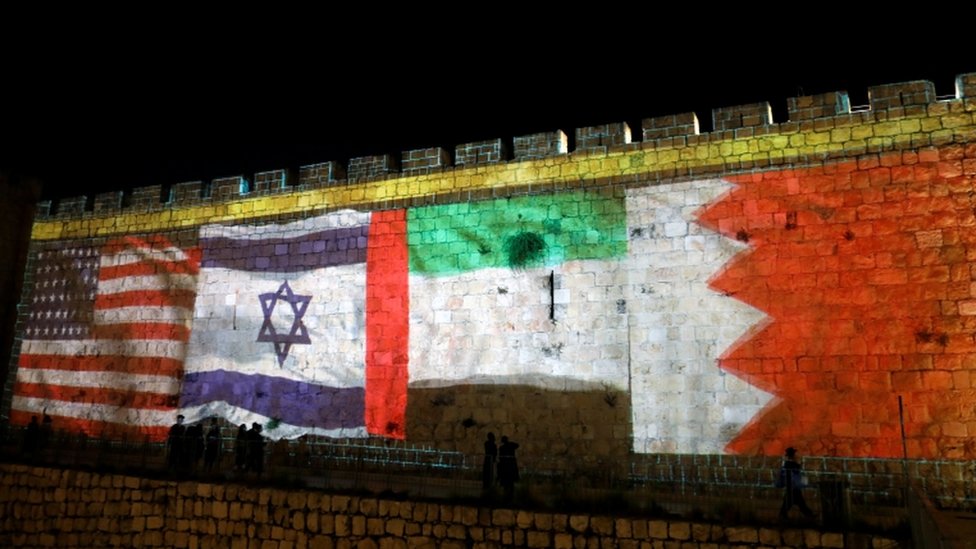According to a BBC report, a UAE-Israel peace deal has been formulated and signed making way for a historic day in the history of conflicts in the region.
How Crucial It Is?
- The two Gulf states signed agreements fully normalising their relations with Israel.
- The three countries hailed the deals as historic, as did the US Presidenty, whose administration helped broker them. He even received a peace Nobel nomination for this.
- The Gulf states are just the third and fourth Arab countries to recognise Israel since its founding in 1948.
- the US President hopes other countries will follow suit, but the Palestinians have urged them not to while their conflict remains unresolved.
- For decades, most Arab states have boycotted Israel, insisting they would only establish ties after Israel’s dispute with the Palestinian was settled.
“After decades of division and conflict we mark the dawn of a new Middle East,” Mr Trump told a crowd of hundreds gathered at the White House on Tuesday.
“We’re here this afternoon to change the course of history,“ he added.
“Peace, security and stability will not be achieved in the region until the Israeli occupation ends,” Palestine said in a statement after the signing of the deals, AFP news agency reports.
Why are these agreements ‘historic’?
- Before the UAE and Bahrain, the only other Arab countries in the Middle East to recognise Israel officially were Egypt and Jordan, who signed peace treaties in 1978 and 1994 respectively.
- Mauritania, a member of the Arab League in north-west Africa, established diplomatic relations with Israel in 1999 but severed ties in 2010.
 IMAGE COPYRIGHTREUTERS
IMAGE COPYRIGHTREUTERSAll eyes will be on whether other countries in the region follow suit, above all Saudi Arabia. So far, the Saudis have signalled that they are not ready.
The agreements are also likely to usher in new security ties in a region where many of the Gulf Arab states share with the Israelis a common adversary in Iran.

What’s the background?
There is a backdrop of the regional rivalry between Saudi Arabia and Iran in these diplomatic moves.
The decades-old feud between them is exacerbated by religious differences. They each follow one of the two main branches of Islam – Iran is largely Shia Muslim, while Saudi Arabia sees itself as the leading Sunni Muslim power.
The UAE and Bahrain are both Saudi allies.
Saudi Arabia’s response will be watched closely. There is no indication yet it is ready to follow Bahrain and the UAE.
Prior to the announcement of the UAE agreement in August – which included the suspension of Israel’s controversial plans to annex parts of the occupied West Bank – Israel had had no diplomatic relations with Gulf Arab countries.
Last month saw the first official flight from Israel to the UAE, which was seen as a major step in normalising relations.
President Trump’s son-in-law and senior adviser Jared Kushner, who was on the plane, described the UAE deal as having “the ability to change the whole course of the Middle East”.
Did you subscribe to our daily newsletter?
It’s Free! Click here to Subscribe!
Source: BBC

















